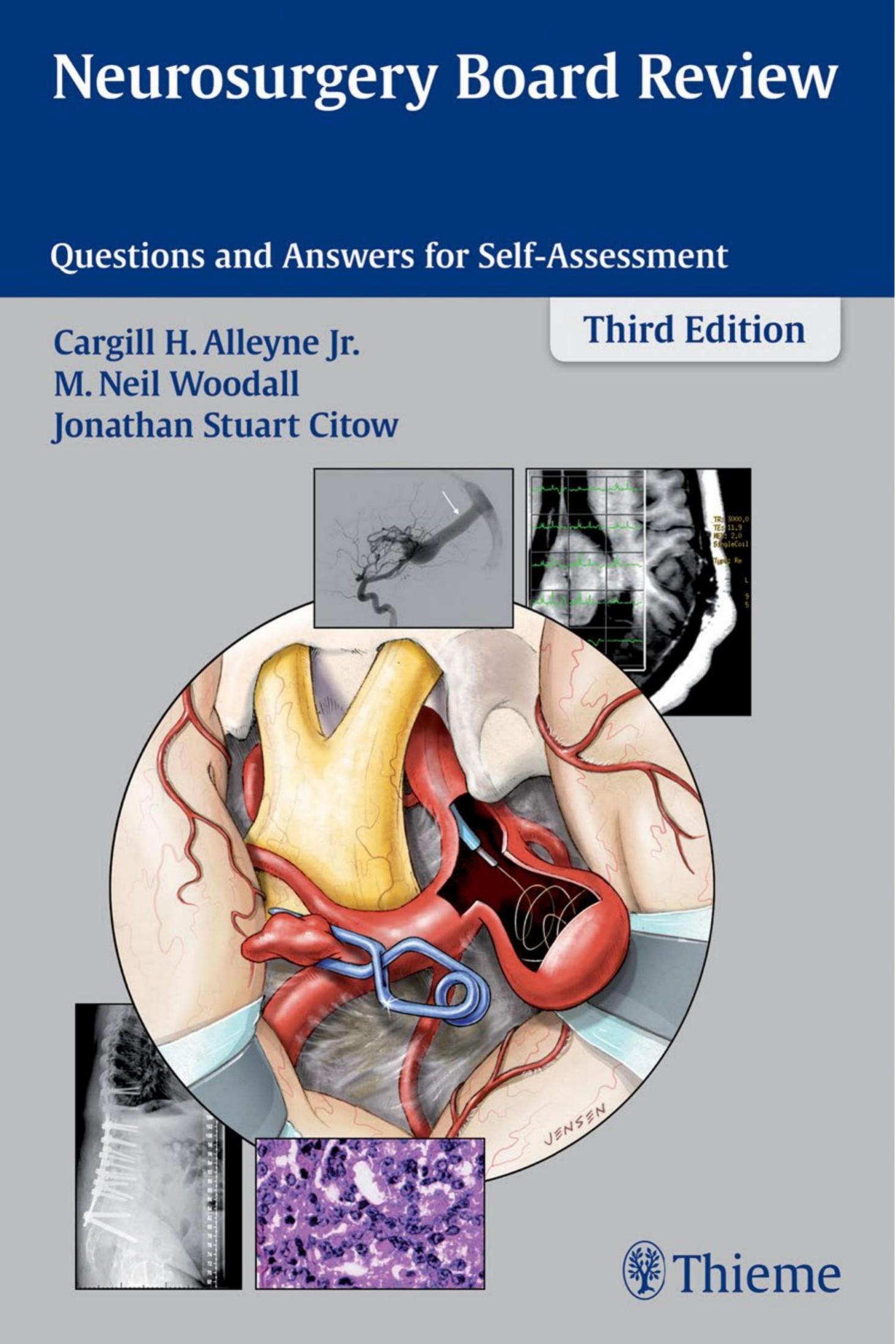Exploring the Variety of Random Documents with Different Content
tightly, not letting them loose, and he advanced with his body thrown back, as if struggling against a strong wind. And at each step the soldier gave him a push with the butt-end of his rifle, and one leg, tearing itself from the earth, convulsively thrust itself forward, while the other still stuck tightly. The faces of the soldiers were weary and angry, and evidently they had been marching so for a long time; one felt they were tired and indifferent as to how they carried their guns and how they marched, keeping no step, with their feet turned in like countrymen. The senseless, lingering and silent resistance of the peasants seemed to have dimmed their disciplined brains, and they had ceased to understand where they were going and what their goal was.
"Where are you leading them to?" I asked of one of the soldiers. He started, glanced at me, and in the keen flash of his eyes I felt the bayonet as distinctly as if it were already at my breast.
"Go away!" said the soldier; "go away, or else...."
The middle-aged man took advantage of the moment and ran away; he ran with a light trot up to the iron railings of the boulevard and sat down on his heels, as if he were hiding. No animal would have acted so stupidly, so senselessly. But the soldier became savage. I saw him go close up to him, stoop down and, thrusting his gun into the left hand, strike something soft and flat with the right one. And then again. A crowd was gathering. Laughter and shouts were heard....
FRAGMENT XIV
... In the eleventh row of stalls. Somebody's arms were pressing closely against me on my right- and left-hand side, while far around me in the semi-darkness stuck out motionless heads, tinged with red from the lights upon the stage. And gradually the mass of people,
confined in that narrow space, filled me with horror. Everybody was silent, listening to what was being said on the stage or, perhaps, thinking out his own thoughts, but as they were many, they were more audible, for all their silence, than the loud voices of the actors. They were coughing, blowing their noses, making a noise with their feet and clothes, and I could distinctly hear their deep, uneven breathing, that was heating the air. They were terrible, for each of them could become a corpse, and they all had senseless brains. In the calmness of those well-brushed heads, resting upon white, stiff collars, I felt a hurricane of madness ready to burst every second.
My hands grew cold as I thought how many and how terrible they were, and how far away I was from the entrance. They were calm, but what if I were to cry out "Fire!" ... And full of terror, I experienced a painfully passionate desire, of which I cannot think without my hands growing cold and moist. Who could hinder me from crying out yes, standing up, turning round and crying out: "Fire! Save yourselves—fire!"
A convulsive wave of madness would overwhelm their still limbs. They would jump up, yelling and howling like animals; they would forget that they had wives, sisters, mothers, and would begin casting themselves about like men stricken with sudden blindness, in their madness throttling each other with their white fingers fragrant with scent. The lights would be turned on, and somebody with an ashen face would appear upon the stage, shouting that all was in order and that there was no fire, and the music, trembling and halting, would begin playing something wildly merry—but they would be deaf to everything—they would be throttling, trampling, and beating the heads of the women, demolishing their ingenious, cunning head-dresses. They would tear at each other's ears, bite off each other's noses, and tear the very clothes off each other's bodies, feeling no shame, for they would be mad. Their sensitive, delicate, beautiful, adorable women would scream and writhe helplessly at their feet, clasping their knees, still believing in their generosity— while they would beat them viciously upon their beautiful upturned
faces, trying to force their way towards the entrance. For men are always murderers, and their calmness and generosity is the calmness of a well-fed animal, that knows itself out of danger.
And when, having made corpses of half their number, they would gather at the entrance in a trembling, tattered group of shamefaced animals, with a false smile upon their lips, I would go on to the stage and say with a laugh,—
"It has all happened because you killed my brother." Yes, I would say with a laugh: "It has all happened because you killed my brother."
I must have whispered something aloud, for my neighbour on the right-hand side moved angrily in his chair and said,—
"Hush! You are interrupting."
I felt merry and wanted to play a joke. Assuming a warning severe expression, I stooped towards him.
"What is it?" he asked suspiciously. "Why do you look at me so?"
"Hush, I implore you," whispered I with my lips. "Do you not perceive a smell of burning? There is a fire in the theatre."
He had enough power of will and good sense not to cry out. His face grew pale, his eyes starting out of their sockets and almost protruding over his cheeks, enormous as bladders, but he did not cry out. He rose quietly and, without even thanking me, walked totteringly towards the entrance, convulsively keeping back his steps. He was afraid of the others guessing about the fire and preventing him getting away—him, the only one worthy of being saved.
I felt disgusted and left the theatre also; besides I did not want to make known my incognito too soon. In the street I looked towards that part of the sky where the war was raging; everything was calm,
and the night clouds, yellow from the lights of the town, were slowly and calmly drifting past.
"Perhaps it is only a dream, and there is no war?" thought I, deceived by the stillness of the sky and town.
But a boy sprang out from behind a corner, crying joyously,—
"A terrible battle. Enormous losses. Buy a list of telegrams—night telegrams!"
I read it by the light of the street lamp. Four thousand dead. In the theatre, I should say, there were not more than one thousand. And the whole way home I kept repeating—"Four thousand dead."
Now I am afraid of returning to my empty house. When I put my key into the lock and look at the dumb, flat door, I can feel all its dark empty rooms behind it, which, however, the next minute, a man in a hat would pass through, looking furtively around him. I know the way well, but on the stairs I begin lighting match after match, until I find a candle. I never enter my brother's study, and it is locked with all that it contains. And I sleep in the dining-room, whither I have shifted altogether: there I feel calmer, for the air seems to have still retained the traces of talking and laughter and the merry clang of dishes. Sometimes I distinctly hear the scraping of a dry pen—and when I lay down on my bed....
FRAGMENT XV
... That absurd and terrible dream. It seemed as if the skull had been taken off my brain and, bared and unprotected, it submissively and greedily imbibed all the horrors of those bloody and senseless days. I was lying curled up, occupying only five feet of space, while my thought embraced the whole world. I saw with the eyes of all mankind, and listened with its ears; I died with the killed, sorrowed
and wept with all that were wounded and left behind, and, when blood flowed out of anybody's body, I felt the pain of the wound and suffered. Even all that had not happened and was far away, I saw as clearly as if it had happened and was close by, and there was no end to the sufferings of my bared brain.
Those children, those innocent little children. I saw them in the street playing at war and chasing each other, and one of them was already crying in a high-pitched, childish voice—and something shrank within me from horror and disgust. And I went home; night came on—and in fiery dreams, resembling midnight conflagrations, those innocent little children changed into a band of child-murderers.
Something was ominously burning in a broad red glare, and in the smoke there swarmed monstrous, misshapen children, with heads of grown-up murderers. They were jumping lightly and nimbly, like young goats at play, and were breathing with difficulty, like sick people. Their mouths, resembling the jaws of toads or frogs, opened widely and convulsively; behind the transparent skin of their naked bodies the red blood was coursing angrily—and they were killing each other at play. They were the most terrible of all that I had seen, for they were little and could penetrate everywhere.
I was looking out of the window and one of the little ones noticed me, smiled, and with his eyes asked me to let him in.
"I want to go to you," he said.
"You will kill me."
"I want to go to you," he said, growing suddenly pale, and began scrambling up the white wall like a rat—just like a hungry rat. He kept losing his footing, and squealed and darted about the wall with such rapidity, that I could not follow his impetuous, sudden movements.
"He can crawl in under the door," said I to myself with horror, and as if he had guessed my thought, he grew thin and long and, waving
the end of his tail rapidly, he crawled into the dark crack under the front door. But I had time to hide myself under the blanket, and heard him searching for me in the dark rooms, cautiously stepping along with his tiny bare feet. He approached my room very slowly, stopping now and then, and at last entered it; but I did not hear any sound, either rustle or movement for a long time, as if there was nobody near my bed. And then somebody's little hand began lifting up the edge of the coverlet, and I could feel the cold air of the room upon my face and chest. I held the blanket tightly, but it persisted in lifting itself up on all sides; and all of a sudden my feet became so cold, as if I had dipped them into water. Now they were lying unprotected in the chill darkness of the room, and he was looking at them.
In the yard, behind the house, a dog barked and was silent, and I heard the trail of its chain as it went into its kennel. But he still watched my naked feet and kept silence; I knew he was there by the unendurable horror that was binding me like death with a stony, sepulchral immobility. If I could have cried out, I would have awakened the whole town, the whole world, but my voice was dead within me, and I lay submissive and motionless, feeling the little cold hands moving over my body and nearing my throat.
"I cannot!" I groaned, gasping and, waking up for an instant, I saw the vigilant darkness of the night, mysterious and living, and again I believe I fell asleep....
"Don't fear," said my brother, sitting down upon my bed, and the bed creaked, so heavy he was dead. "Never fear, you see it is a dream. You only imagine that you were being strangled, while in reality you are asleep in the dark rooms, where there is not a soul, and I am in my study writing. Nobody understood what I wrote about, and you derided me as one insane, but now I will tell you the truth. I am writing about the red laugh. Do you see it?"
Something enormous, red and bloody, was standing before me, laughing a toothless laugh.
"That is the red laugh. When the earth goes mad, it begins to laugh like that. You know, the earth has gone mad. There are no more flowers or songs on it; it has become round, smooth and red like a scalped head. Do you see it?"
"Yes, I see it. It is laughing."
"Look what its brain is like. It is red, like bloody porridge, and is muddled."
"It is crying out."
"It is in pain. It has no flowers or songs. And now—let me lie down upon you."
"You are heavy and I am afraid."
"We, the dead, lie down on the living. Do you feel warm?"
"Yes."
"Are you comfortable?"
"I am dying."
"Awake and cry out. Awake and cry out. I am going away....."
FRAGMENT XVI
.....To-day is the eighth day of the battle. It began last Friday, and Saturday, Sunday, Monday, Tuesday, Wednesday and Thursday have passed—and Friday has come again and is gone—and it is still going on. Both armies, hundreds of thousands of men, are standing in front of each other, never flinching, sending explosive, crashing projectiles without stopping, and every instant living men are turned into corpses. The roar and incessant vibration of the air has made the very sky shudder and gather black thunderclouds above their
heads,—while they continue to stand in front of each other, never flinching and still killing each other. If a man does not sleep for three nights, he becomes ill and loses his memory, but they have not slept for a whole week and are all mad. That is why they feel no pain, do not retreat, and go on fighting until they have killed all to the last man. They say that some of the detachments came to the end of their ammunition, but still they fought on, using their fists and stones, and biting at each other like dogs. If the remnants of those regiments return home, they will have canine teeth like wolves—but they will not return, they have gone mad and die, every man of them. They have gone mad. Everything is muddled in their heads, and they cease to understand anything! If they were to be turned round suddenly and sharply, they would begin firing at their own men, thinking that they were firing at the enemy.
Strange rumours—strange rumours that are told in a whisper, those repeating them turning white from horror and dreadful forebodings. Brother, brother, listen what is being told of the red laugh! They say phantom regiments have appeared, large bands of shadows, the exact copy of living men. At night, when the men forget themselves for an instant in sleep, or in the thick of the day's fight, when the bright day itself seems a phantom, they suddenly appear, firing out of phantom guns, filling the air with phantom noises; and men, living but insane men, astounded by the suddenness of the attack, fight to the death against the phantom enemy, go mad from horror, become grey in an instant and die. The phantoms disappear as suddenly as they appear, and all becomes still, while the earth is strewn with fresh mutilated bodies. Who killed them? You know, brother, who killed them. When there is a lull between two battles and the enemy is far off, suddenly in the darkness of the night there resounds a solitary, frightened shot. And all jump up and begin firing into the darkness, into the silent dumb darkness, for a long time, for whole hours. Whom do they see there? Whose terrible, silent shape, full of horror and madness appears before them? You know, brother, and I know, but men do not know yet, but they have a foreboding,
and ask, turning pale: "Why are there so many madmen? Before there never used to be so many."
"Before there never used to be so many madmen," they say, turning pale, trying to believe that now it is as before, and that the universal violence done to the brains of humanity would have no effect upon their weak little intellects.
"Why, men fought before and always have fought, and nothing of the sort happened. Strife is a law of nature," they say with conviction and calmness, growing pale, nevertheless, seeking for the doctor with their eyes, and calling out hurriedly: "Water, quick, a glass of water!"
They would willingly become idiots, those people, only not to feel their intellect reeling and their reason succumbing in the hopeless combat with insanity.
In those days, when men over there were constantly being turned into corpses, I could find no peace, and sought the society of my fellow-men; and I heard many conversations and saw many false smiling faces, that asserted that the war was far off and in no way concerned them. But much oftener I met naked, frank horror, hopeless, bitter tears and frenzied cries of despair, when the great Mind itself cried out of man its last prayer, its last curse, with all the intensity of its power,—
"Whenever will the senseless carnage end?"
At some friends', whom I had not seen for a long time, perhaps several years, I unexpectedly met a mad officer, invalided from the war. He was a schoolfellow of mine, but I did not recognise him: if he had lain for a year in his grave, he would have returned more like himself than he was then. His hair was grey and his face quite white, his features were but little changed,—but he was always silent, and seemed to be listening to something, and this stamped upon his face a look of such formidable remoteness, such indifference to all around him, that it was fearful to talk to him. His relatives were told
he went mad in the following circumstances: they were in the reserve, while the neighbouring regiment was ordered to make a bayonet charge. The men rushed shouting "Hurrah" so loudly as almost to drown the noise of the cannon,—and suddenly the guns ceased firing, the "Hurrah" ceased also, and a sepulchral stillness ensued: they had run up to the enemy and were charging him with their bayonets. And his reason succumbed to that stillness.
Now he is calm when people make a noise around him, talk and shout, he listens and waits, but if only there is a moment's silence, he catches hold of his head, rushes up to the wall or against the furniture, and falls down in a fit resembling epilepsy. He has many relations, and they take turns and surround him with sound, but there remain the nights, long solitary nights—but here his father, a grey-haired old man, slightly wandering in his mind too, helped. He hung the walls of his son's room with loudly ticking clocks, that constantly struck the hour at different times, and at present he is arranging a wheel, resembling an incessantly-going rattle. None of them lose hope that he will recover, as he is only twenty-seven, and their house is even gay. He is dressed very cleanly—not in his uniform—great care is taken of his appearance and he is even handsome with his white hair, young, thoughtful face and well-bred, slow, tired movements.
When I was told all, I went up and kissed his hand, his white languid hand, which will never more be lifted for a blow and this did not seem to surprise anybody very much. Only his young sister smiled at me with her eyes, and afterwards showed me such attention that it seemed as if I were her betrothed and she loved me more than anybody in the world. She showed me such attention that I very nearly told her about my dark empty rooms, in which I am worse than alone—miserable heart, that never loses hope.... And she managed that we remained alone.
"How pale you are and what dark rings you have under your eyes," she said kindly. "Are you ill? Are you grieving for your brother?"
"I am grieving for everybody. And I do not feel well."
"I know why you kissed my brother's hand. They did not understand. Because he is mad, yes?"
"Yes, because he is mad."
She grew thoughtful and looked very much like her brother, only younger.
"And will you," she stopped and blushed, but did not lower her eyes, "will you let me kiss your hand?"
I kneeled before her and said: "Bless me."
She paled slightly, drew back and whispered with her lips,—
"I do not believe."
"And I also."
For an instant her hand touched my head, and the instant was gone.
"Do you know," she said, "I am leaving for the war."
"Go? But you will not be able to bear it."
"I do not know. But they need help, the same as you or my brother. It is not their fault. Will you remember me?"
"Yes. And you?"
"And I will remember you too. Good-bye!"
"Good-bye for ever!"
And I grew calm and felt happier, as if I had passed through the most terrible that there is in death and madness. And yesterday, for the first time, I entered my house calmly without any fear, and opened my brother's study and sat for a long time at his table. And when in the night I suddenly awoke as if from a push, and heard the
scraping of the dry pen upon the paper, I was not frightened, but thought to myself almost with a smile,—
"Work on, brother, work on! Your pen is not dry, it is steeped in living human blood. Let your paper seem empty—in its ominous emptiness it is more eloquent of war and reason than all that is written by the most clever men. Work on, brother, work on!"
... And this morning I read that the battle is still raging, and again I was possessed with a dread fear and a feeling of something falling upon my brain. It is coming, it is near; it is already standing upon the threshold of these empty, light rooms. Remember, remember me, dear girl; I am going mad. Thirty thousand dead, thirty thousand dead!...
FRAGMENT XVII
... A fight is going on in the town. There are dark and fearful rumours....
FRAGMENT XVIII
This morning, looking through the endless list of killed in the newspaper, I saw a familiar name; my sister's affianced husband, an officer called for military service at the same time as my dead brother, was killed. And, an hour later, the postman handed me a letter addressed to my brother, and I recognised the handwriting of the deceased on the envelope: the dead was writing to the dead. But still it was better so than the dead writing to the living. A mother was pointed out to me who kept receiving letters from her son for a whole month after she had read of his terrible death in the papers:
he had been torn to pieces by a shell. He was a fond son, and each letter was full of endearing and encouraging words and youthful, naïve hopes of happiness. He was dead, but wrote of life with a fearful accuracy every day, and the mother ceased to believe in his death; and when a day passed without any letter, then a second and a third, and the endless silence of death ensued, she took a large old-fashioned revolver belonging to her son in both hands, and shot herself in the breast. I believe she survived, but I am not sure; I never heard.
I looked at the envelope for a long time, and thought: He held it in his hands, he bought it somewhere, he gave the money to pay for it, and his servant went to fetch it from some shop; he sealed and perhaps posted it himself. Then the wheel of the complex machine called "post" came into action, and the letter glided past forest, fields and towns, passing from hand to hand, but rushing infallibly towards its destination. He put on his boots that last morning, while it went gliding on; he was killed, but it glided on; he was thrown into a pit and covered up with dead bodies and earth, while it still glided on past forests, fields and towns, a living phantom in a grey, stamped envelope. And now I was holding it in my hands.
Here are the contents of the letter. It was written with a pencil on scraps of paper, and was not finished: something interfered.
"... Only now do I understand the great joy of war, the ancient, primitive delight of killing man—clever, scheming, artful man, immeasurably more interesting than the most ravenous animal. To be ever taking life is as good as playing at lawn-tennis with planets and stars. Poor friend, what a pity you are not with us, but are constrained to weary away your time amidst an unleavened daily existence! In the atmosphere of death you would have found all that your restless, noble heart yearned for. A bloody feast—what truth there is in this somewhat hackneyed comparison! We go about up to our knees in blood, and this red wine, as my jolly men call it in jest, makes our heads swim. To drink the blood of one's enemy is not at
all such a stupid custom as we think: they knew what they were doing....
"... The crows are cawing. Do you hear, the crows are cawing. From whence have they all gathered? The sky is black with them; they settle down beside us, having lost all fear, and follow us everywhere; and we are always underneath them, like under a black lace sunshade or a moving tree with black leaves. One of them approached quite close to my face and wanted to peck at it: he thought, most probably, that I was dead. The crows are cawing, and this troubles me a little. From whence have they all gathered?...
"... Yesterday we stabbed them all sleeping. We approached stealthily, scarcely touching the ground with our feet, as if we were stalking wild ducks. We stole up to them so skilfully and cautiously that we did not touch a corpse and did not scare one single crow. We stole up like shadows, and the night hid us. I killed the sentry myself—knocked him down and strangled him with my hands, so as not to let him cry out. You understand: the slightest sound, and all would have been lost. But he did not cry out; he had no time, I believe, even to guess that he was being killed.
"They were all sleeping around the smouldering fires—sleeping peacefully, as if they were at home in their beds. We hacked about us for more than an hour, and only a few had time to awake before they received their death-blow. They howled, and of course begged for mercy. They used their teeth. One bit off a finger on my left hand, with which I was incautiously holding his head. He bit off my finger, but I twisted his head clean off: how do you think—are we quits? How they did not all wake up I cannot imagine. One could hear their bones crackling and their bodies being hacked. Afterwards we stripped all naked and divided their clothes amongst ourselves. My friend, don't get angry over a joke. With your susceptibility you will say this savours of marauding, but then we are almost naked ourselves; our clothes are quite worn-out. I have been wearing a woman's jacket for a long time, and resemble more a ... than an officer of a victorious army. By the bye, you are, I believe, married,
and it is not quite right for you to read such things. But ... you understand? Women. D—n it, I am young, and thirst for love! Stop a minute: I believe it was you who was engaged to be married? It was you, was it not, who showed me the portrait of a young girl and told me she was your promised bride?—and there was something sad, something very sad and mournful underneath it. And you cried. That was a long time ago, and I remember it but confusedly; there is no time for softness at war. And you cried. What did you cry about? What was there written that was as sad and mournful as a drooping flower? And you kept crying and crying.... Were you not ashamed, an officer, to cry?
"... The crows are cawing. Do you hear, friend, the crows are cawing. What do they want?"
Further on the pencil-written lines were effaced and it was impossible to decipher the signature. And strange to say the dead man called forth no compassion in me. I distinctly pictured to myself his face, in which all was soft and delicate as a woman's: the colour of his cheeks, the clearness and morning freshness of the eyes, the beard so bushy and soft, that a woman could almost have adorned herself with it. He liked books, flowers and music, feared all that was coarse, and wrote poetry,—my brother, as a critic, declared that he wrote very good poetry. And I could not connect all that I knew and remembered of him with the cawing crows, bloody carnage and death.
... The crows are cawing....
And suddenly for one mad, unutterably happy instant, I clearly saw that all was a lie and that there was no war. There were no killed, no corpses, there was no anguish of reeling, helpless thought. I was sleeping on my back and seeing a dream, as I used to in my childhood: the silent dread rooms, devastated by death and terror, and myself with a wild letter in my hand. My brother was living, and they were all sitting at the tea-table, and I could hear the noise of the crockery.
... The crows are cawing....
No, it is but true. Unhappy earth, it is true. The crows are cawing. It is not the invention of an idle scribbler, aiming at cheap effects, or of a madman, who has lost his senses. The crows are cawing. Where is my brother? He was noble-hearted and gentle and wished no one evil. Where is he? I am asking you, you cursed murderers. I am asking you, you cursed murderers, crows sitting on carrion, wretched, imbecile animals, before the whole world. For you are animals. What did you kill my brother for? If you had a face, I would give you a blow upon it, but you have no face, you have only the snout of a wild beast. You pretend that you are men, but I see claws under your gloves and the flat skull of an animal under your hat; hidden beneath your clever conversation I hear insanity rattling its rusty chains. And with all the power of my grief, my anguish and dishonoured thought I curse you, you wretched, imbecile animals!
FRAGMENT THE LAST
"... We look to you for the regeneration of human life!"
So shouted a speaker, holding on with difficulty to a small pillar, balancing himself with his arm, and waving a flag with a large inscription half-hidden in its folds: "Down with the war!"
"You, who are young, you, whose lives are only just beginning, save yourselves and the future generations from this horror, from this madness. It is unbearable, our eyes are drowned with blood. The sky is falling upon us, the earth is giving way under our feet. Kind people...."
The crowd was buzzing enigmatically and the voice of the speaker was drowned at times in the living threatening noise.
"... Suppose I am mad, but I am speaking the truth. My father and brother are rotting over there like carrion. Make bonfires, dig pits and destroy, bury all your arms. Demolish all the barracks, and strip all the men of their bright clothes of madness, tear them off. One cannot bear it.... Men are dying...."
Somebody very tall gave him a blow and knocked him off the pillar; the flag rose once again and fell. I had no time to see the face of the man who struck him, as instantly everything turned into a nightmare. Everything became commotion, became agitated and howled; stones and logs of wood went flying through the air, fists, that were beating somebody, appeared above the heads. The crowd, like a living, roaring wave, lifted me up, carried me along several steps and threw me violently against a fence, then carried me back and away somewhere, and at last pressed me against a high pile of wood, that inclined forwards, threatening to fall down upon somebody's head. Something crackled and rattled against the beams in rapid dry succession; an instant's stillness—and again a roar burst forth, enormous, open-mouthed, terrible in its overwhelming power. And then the dry rapid crackling was heard again and somebody fell down near me with the blood flowing out of a red hole where his eye had been. And a heavy log of wood came whirling through the air and struck me in the face, and I fell down and began crawling, whither I knew not, amidst the trampling feet, and came to an open space. Then I climbed over some fences, breaking all my nails, clambered up piles of wood; one pile fell to pieces under me and I fell amidst a cataract of thumping logs; at last I succeeded with difficulty in getting out of a closed-in space—while behind me all crashed, roared, howled and crackled, trying to overtake me. A bell was ringing somewhere; something fell with a thundering crash, as if it were a five-storey house. The twilight seemed to have stopped still, keeping back the night, and the roar and shots, as if steeped in red, had driven away the darkness. Jumping over the last fence I found myself in a narrow, crooked lane resembling a corridor, between two obscure walls, and began running. I ran for a long time, but the lane seemed to have no outlet: it was terminated by a
wall, behind which piles of wood and scaffolding rose up black against the sky. And again I climbed over the mobile, shifting piles, falling into pits, where all was still and smelt of damp wood, getting out of them again into the open, not daring to look back, for I knew quite well what was happening by the dull reddish colour that tinged the black beams and made them look like murdered giants. My smashed face had stopped bleeding and felt numbed and strange, like a mask of plaster; and the pain had almost quite disappeared. I believe I fainted and lost consciousness in one of the black holes into which I had fallen, but I am not certain whether I only imagined it or was it really so, as I can only remember myself running.
I rushed about the unfamiliar streets, that had no lamps, past the black death-like houses for a long time, unable to find my way out of the dumb labyrinth. I ought to have stopped and looked around me to define the necessary direction, but it was impossible to do so: the still distant din and howl was following at my heels and gradually overtaking me; sometimes, at a sudden turning, it struck me in the face, red and enveloped in clouds of livid, curling smoke, and then I turned back and rushed on until it was at my back once more. At one corner I saw a strip of light, that disappeared at my approach: it was a shop that was being hastily closed. I caught a glimpse of the counter and a barrel through a wide chink, but suddenly all became enveloped in a silent, crouching gloom. Not far from the shop I met a man, who was running towards me, and we almost collided in the darkness, stopping short at the distance of two steps from each other. I do not know who he was: I only saw the dark alert outline.
"Are you coming from over there?" he asked.
"Yes."
"And where are you running to?"
"Home."
"Ah! Home?"
He was silent for an instant and suddenly flung himself upon me, trying to bring me to the ground, and his cold fingers searched hungrily for my throat, but got entangled in my clothes. I bit his hand, loosened myself from his grip and set off running through the deserted streets with him after me, stamping loudly with his boots, for a long time. Then he stopped—I suppose the bite hurt him.
I do not know how I hit upon my street. It had no lamps either and the houses had not a single light, as if they were dead, and I would have run past without recognising it, if I had not by chance lifted my eyes and seen my house. But I hesitated for some time: the house in which I had lived for so many years seemed to me unfamiliar in that strange dead street, in which my loud breathing awakened an extraordinary and mournful echo. Then I was seized by a sudden wild terror at the thought that I had lost my key when I fell, and I found it with difficulty, although it was there all the time in the pocket of my coat. And when I turned the lock the echo repeated the sound so loudly and extraordinarily, as if all the doors of those dead houses in the whole street had opened simultaneously.
... At first I hid myself in the cellar, but it was terrible and dull down there, and something began darting before my eyes, so I quietly stole into the rooms. Groping my way in the dark I locked all the doors and after a short meditation decided to barricade them with the furniture, but the sound of the furniture being moved was terribly loud in the empty rooms and terrified me. "I shall await death thus. It's all the same," I decided. There was some water, very warm water in the water-jug, and I washed my face in the dark and wiped it with a sheet. The parts that were smashed galled and smarted much, and I felt a desire to look at myself in the lookingglass. I lit a match—and in its uneven, faint light there glanced at me from out of the darkness something so hideous and terrible, that I hastily threw the match upon the floor. I believe my nose was broken. "It makes no difference now," said I to myself. "Nobody will mind."
And I felt gay. With strange grimaces and contortions of the body, as if I were personating a thief on the stage, I went into the larder and began searching for food. I clearly saw the unsuitableness of all my grimaces, but it pleased me so. And I ate with the same contortions, pretending that I was very hungry.
But the darkness and quiet frightened me. I opened the window into the yard and began listening. At first, probably as the traffic had ceased, all seemed to me to be quite still. And I heard no shots. But soon I clearly distinguished a distant din of voices: shouts, the crash of something falling, a laugh. The sounds grew louder perceptibly. I looked at the sky; it was livid and sweeping past rapidly. And the coach-house opposite me, and the paving of the streets, and the dog's kennel, all were tinged with the same reddish glare. I called the dog softly,—
"Neptune!"
But nothing stirred in the kennel, and near it I distinguished in the livid light a shining piece of broken chain. The distant cries and noise of something falling kept on growing, and I shut the window.
"They are coming here!" I said to myself, and began looking for some place to hide myself. I opened the stoves, fumbled at the grate, opened the cupboards, but they would not do. I made the round of all the rooms, excepting the study, into which I did not want to look. I knew he was sitting in his armchair at his table, heaped with books, and this was unpleasant to me at that moment.
Gradually it began to appear that I was not alone: around me people were silently moving about in the darkness. They almost touched me, and once somebody's breath sent a cold thrill through the back of my head.
"Who is there?" I asked in a whisper, but nobody answered. And when I moved on they followed me, silent and terrible. I knew that it was only a hallucination because I was ill and apparently









